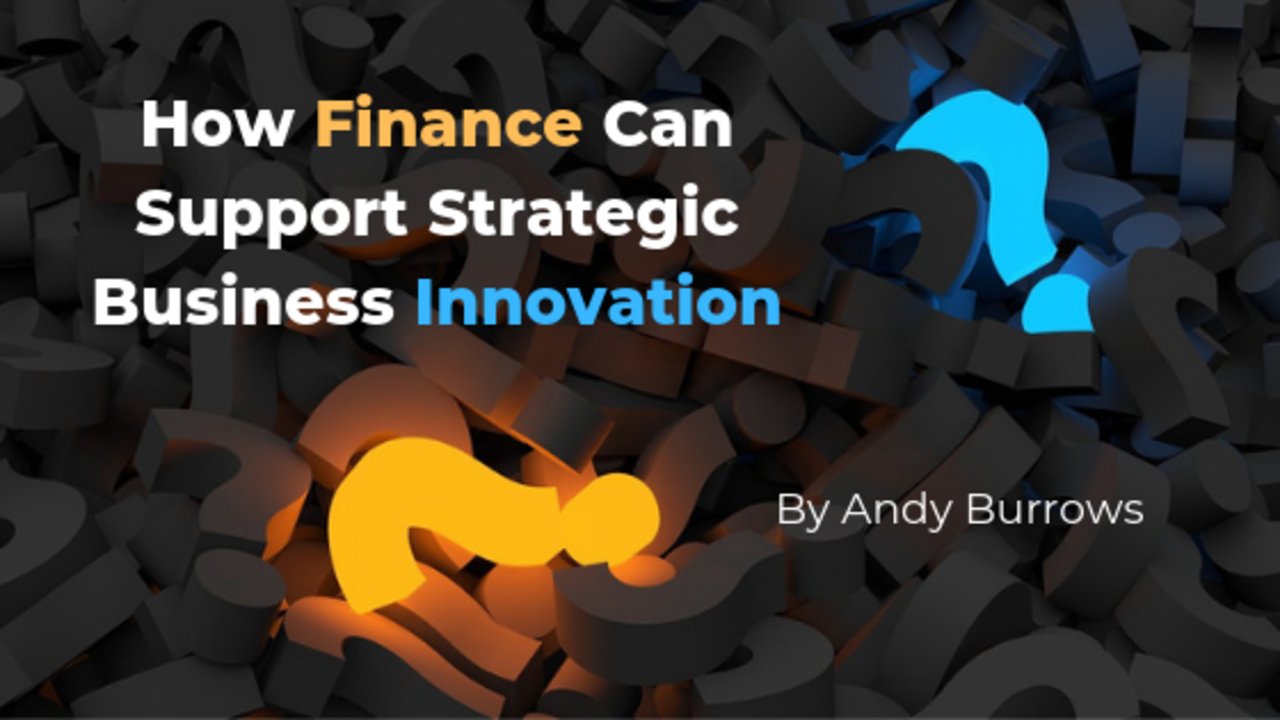Let's stop messing about with project budgeting!

By Andy Burrows
Budgeting creates problems for projects in business.
Projects are often something of an anomaly for Finance when it comes to expenditure control and resource allocation. At least that’s the way that it’s felt.
The problem, however, is really budgetary control.
When I was doing management reporting for functional expenditure areas, that’s what I used to feel with projects.
And the problem was that we were trying to manage project expenditure in the same way as every other kind of expenditure.
We’d create cost centres for projects as if they were business departments. That would mean the nomination of a cost centre manager, and the inclusion of the project costs within the ‘actual vs budget’ variance analysis each month for each function.
When it came to forecasts, we’d collate the data in the same way as every other cost centre. And we’d challenge their forecasts, and their spending against budget in the same way as every other cost centre.
And that meant project...
Why business needs more boring accountants!

By Andy Burrows
When I came out of public practice and went to work for a business in its Finance team, I was fairly naïve. I still had a very black and white view – an auditors view - of accounting. And so, some of the practices of the management accountants were a real shock to me.
My point in this article is that they should be a shock! Finance professionals in business are supposed to tell it how it is, and to be the ones that keep the business honest.
There’s a general joke about the term, “creative accounting” (it’s supposed to be an oxymoron!) But if we’re honest with ourselves in Finance, much of that practice happens with the intention of misleading people. And the only reason we don’t call it fraud is because these things normally involve judgment, and therefore we think we can justify it as just being “very prudent”, or saying, “it’s a grey area”.
Accruals and provisions
In that first job outside public practice, one of the most shocking things to me was the way they us...
Finance transformation without new software or shared services

By Andy Burrows
This article was inspired by a comment someone made a while ago when I was talking recently about innovation within Finance: “Can innovation in finance be as simple as: Put away the spreadsheets! Get off email! And absorb yourself in the business! It seems simple but is it innovative…?”
That struck a chord with me. It would be quite a new and different thing for many Finance people to spend more of their time with the business. It's not what we'd normally class as innovation, but the definition of 'innovation' is just the application of something new to bring about an improvement.
The big question is ‘why?’
The big question is 'why?' What benefit would there be from Finance people spending more time with non-Finance people in the business? Are we saying that there is more value in simple conversations with non-Finance business managers than spending time on the spreadsheets we love (and love to hate)? How can that be?
Many people may respond with frustration, sayin...
Another Brick in the Finance Wall – We Don’t Need No Innovation!

By Andy Burrows
This is my second article looking at the relationship of Finance with innovation. In the other article I shared a few thoughts on how Finance can support strategic business innovation, which benefits customers and provides competitive advantage.
This time I want to turn my attention to innovation within Finance, affecting what we do on a day to day basis.
What is innovation?
One question we’d probably better get sorted in our minds is, what is innovation?
I remember attending a presentation a while back. In it they expressed great concern that a survey showed very few CFOs had priorities in innovation within Finance. (Well, of course, they did. The event was sponsored by one of the big software vendors! Ok, I’m being cynical, I know!)
And I sat there thinking, what do they mean by innovation?
And why is it such a high priority thing to do?
We’re all so busy. And some software sales person comes along and says we really need to consider their interesting technolo...
How Finance Can Support Strategic Business Innovation

By Andy Burrows
Two innovation problems for Finance
When we think about the attitude of Finance towards innovation, there are two key questions:
- What should our attitude be towards business innovation? And,
- What should our attitude be towards internal innovation within Finance?
I’ll deal with the second question in another article.
But, before I kick off let me be honest about my thinking about innovation and Finance.
I approach innovation, whether in business or Finance, with a mixture of scepticism and mind-boggled wonder.
I am still staggered when I think of the rate of change over my working life. The internet, mobile communication, digital music and photography, to name but a few. Life has been transformed in less than 30 years.
And in order to achieve that, brave entrepreneurs – the likes of Bill Gates, Steve Jobs, Mark Zuckerberg – had to take risks with their new inventions. They reaped the rewards, and continue to do so.
And there have been hard lessons for busin...
7 Things Finance Can Do to Make Business Projects Successful

By Andy Burrows
I’ve worked in many businesses, and only two of them had what I would have judged to be a proper grip on change projects. In the other ones, senior Finance people would sometimes talk disparagingly about certain projects, and almost ‘tut’ with disapproval in seeing projects underdelivering and overrunning on time and costs.
I never had much time for that kind of ‘standing-on-the-side-lines’ mentality. It’s always struck me that there’s so much we can do in Finance to help projects succeed, rather than standing watching them crash and burn, wringing our hands, as if it’s some sort of spectator-sport.
So, here are seven observations – things that I think Finance can easily improve that will give change projects in our businesses more of a fighting chance.
1. Appreciate the Importance of Projects
First of all, I don’t always get the impression that Finance business partners really appreciate the importance of change projects.
Projects are seen more as an intrusion...
All forecasts are wrong - so what?

By Andy Burrows
“Does anyone in FP&A ever review the accuracy of their predictive financial models from time to time?” That’s the question I posed on LinkedIn a while back, and it generated a good discussion. And it turns out that FP&A professionals generally care quite a lot about the accuracy of their forecasts.
One of the businesses I worked in was strongly linked to the travel industry. So, our business tended to fluctuate seasonally. But we never seemed to be able to get our P&L and volume forecasts right. It was low margin, high volume business. So, volumes made a big difference. It was so frustrating trying to predict things like the effect of Easter being early or late, public holidays, school holidays, and other factors like the economy, the weather, and exchange rates.
When we did variance analysis, the Managing Director would get frustrated with us, because sometimes the explanation for a variance would be that we’d neglected to include a factor in the forecast that we r...
How to tell if your Finance function is any good

By Andy Burrows
There are many different ways of looking at the performance of a Finance function.
But in this article, I want to start from first principles and definitions.
As with any question of performance, before you can tell how well you’re doing, you have to know “what good looks like”.
How can we tell if we’re doing a good job if we don’t know what the definition of “good” is?
But don’t, at this point, go straight into thinking about how you’d define a good job in Finance! If you do, you’re jumping the gun!
We need one more definition... the general definition of “doing a good job”.
The general definition of “doing a good job” is that you are meeting your objectives, which in turn is defined as making your anticipated progress towards your ultimate goals.
So, you have to know at the outset what your goals and objectives are.
Most people think that these are so obvious that they skip the thinking here. But it makes such a huge difference. And that lazy thinking is one ...
The one risk you should always take as a Finance professional

By Andy Burrows
Do we want risk takers in Finance? Does that conjure up positive or negative images in your mind?
I once asked my Supercharged Finance newsletter subscribers to tell me about problems and issues they had in Finance. One FP&A Director wrote back to me saying that one of his frustrations was that his team was reluctant to take risks.
And, before you get worried, I'm not supporting taking unnecessary risks with company funds! Business risk and risk management is another story.
But in a very big sense, I believe we do need people in Finance who are willing to actually take risks personally.
But what risks do we want our Finance people to take? And what are the benefits of developing risk takers in Finance? And how do you develop that culture?
Being outside our comfort zone is often not a risk at all
What we’re really thinking about is being willing to be outside our comfort zone.
The downside risk is that we’ll make mistakes, we’ll be corrected, we’ll potentially l...
What I learnt from nearly going bust

By Andy Burrows
The cold, hard fact
The basic - some would say the obvious – fundamental requirement in keeping a business alive is cash. Not customers, and not profit – you can have both of those things and still have a business failure. Cash is like the lifeblood of a business. That’s why the maxim, “Cash in King” is so true.
Anyone in business should have heard this. But it may still seem confusing to you how you can be profitable and run out of cash and fail. If that’s the case, then you can think more clearly about this by remembering one word...
... timing.
Take a very simple example – I buy a car for £5,000 and sell it for £10,000. There is no question that I have a good customer and I have made a profit. But if I have to pay for the car tomorrow, and I am not going to get money from the customer until next week, then my business will fail if I don’t have £5,000 cash to pay for the car tomorrow.
The brutal fact of cash flow management, really, is that to maintain the level...




